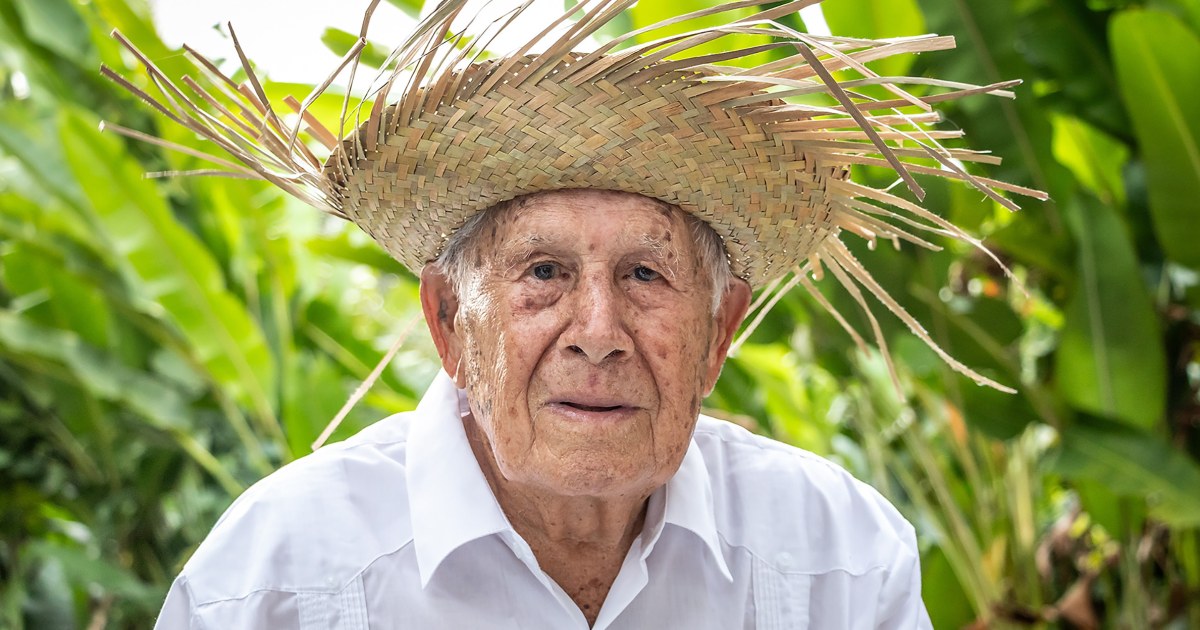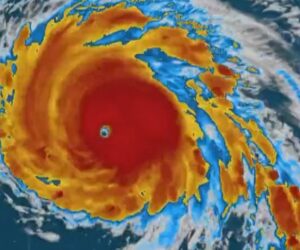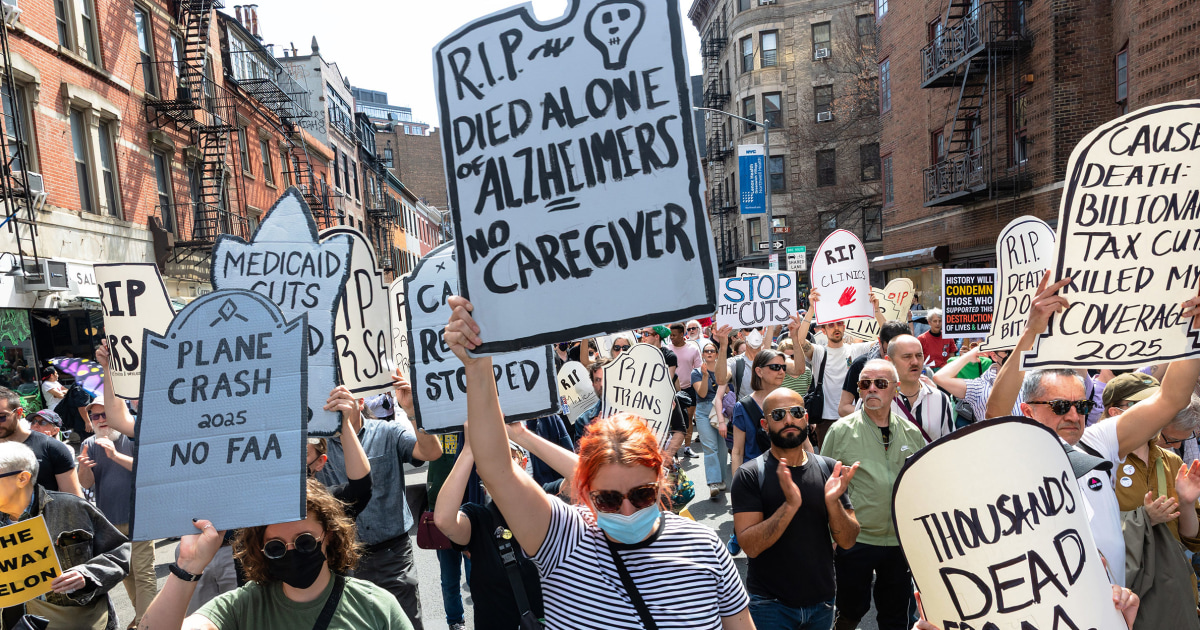LUQUILLO, Puerto Rico — Nestled between El Yunque National Forest and the shores of the ocean lives Andrés González Vega, one of the last remaining World War II veterans.
Don Andrés, or “Dede,” as he’s affectionately known in his hometown, is 101 years old and one of the nearly 16.4 million soldiers who fought in the war from 1941 to 1945 as part of the U.S. military.
Eighty years after the end of the war, less than 1% of all World War II veterans still live. Don Andrés, who is writing a memoir, is one of them.
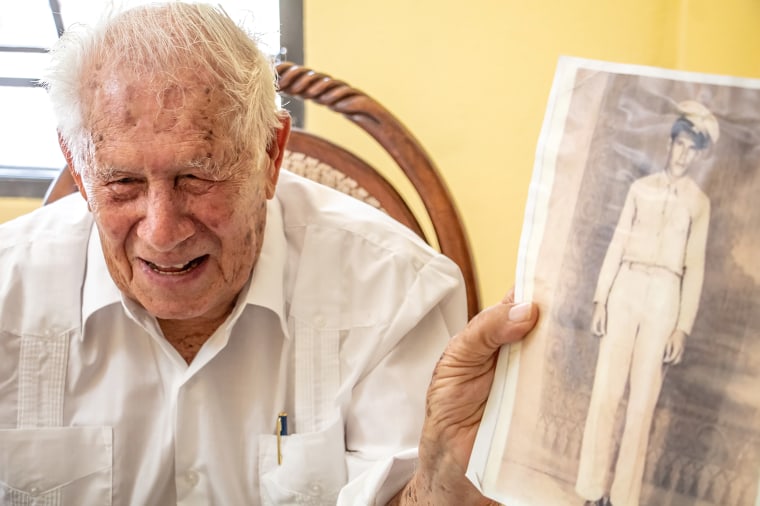
With the help of his daughter, Julia González, Don Andrés is writing a book to document nearly a century of life.
González Vega, who still retains the lucidity and memory of a historian, recalls in detail how at age 18 he had to report to Fort Buchanan, in San Juan. After a week of medical and physical evaluations, his name echoed over the camp’s loudspeaker.
“I was waiting for that call,” González Vega proudly remarked in his native Spanish. Lined up alongside all the other young Puerto Ricans, González Vega handed in his shoes, socks, pants, underwear and shirt before he left the camp to fight in the war.
Having lunch with her father at his home, González said it has been a challenge for her father to write his memoir because Don Andrés “always likes to talk about the good things,” though life has both ups and downs, she said.
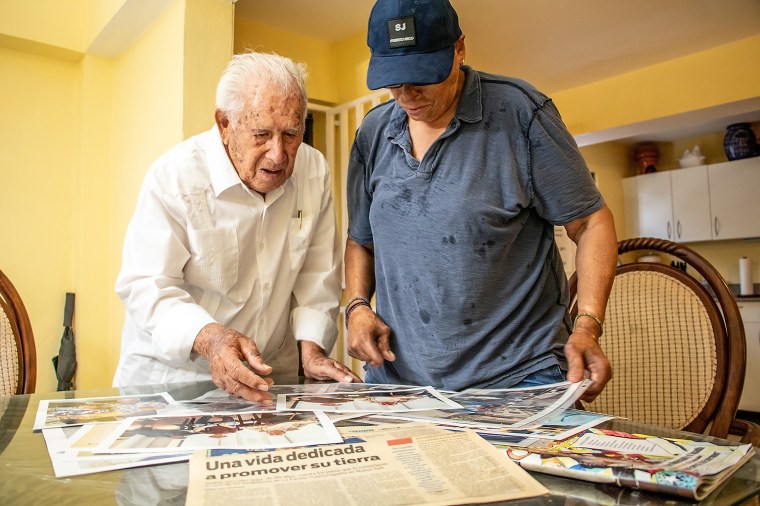
But González Vega, known as a defender and promoter of Puerto Rican culture, is also acknowledging past struggles and challenges as he talks about his life.
Both he and his daughter remember walking down the streets of New York, where they lived for many years, and seeing signs reading, “Puerto Ricans Go Home.” They also recalled the dozens of times they had to paint over their home after it was tagged with racial slurs like “Spic Go Home.”
The memoir will document Don Andrés’ time in the war, his experiences in New York as one of the founders of the iconic National Puerto Rican Day Parade and his accomplishments in Puerto Rico as the creator of the Coconut Festival in Luquillo and a festival coordinator at the Institute of Puerto Rican Culture.
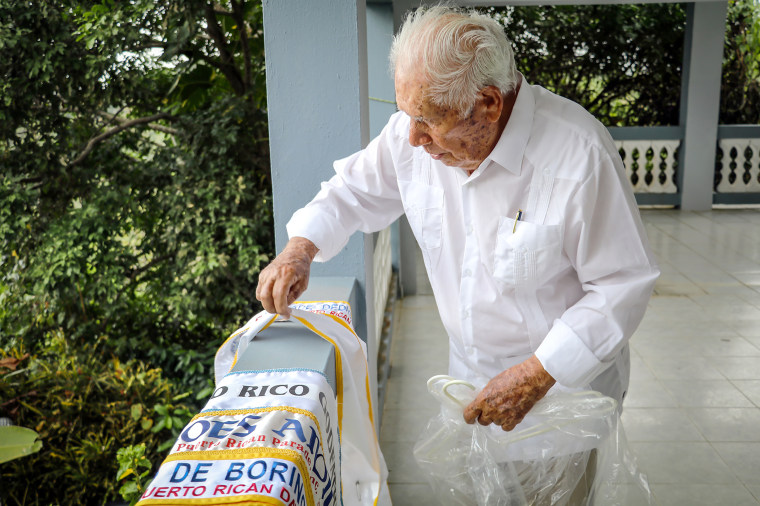
Eating his favorite chicken wings with tostones, or fried plantains, Don Andrés nostalgically reminisced about the days when most Puerto Ricans walked barefoot through the countryside and fetched water from a well.
González Vega, who was born on the Puerto Rican island of Vieques on May 30, 1924, said that as a child, he would cross a river on his way to school and harvest the bananas and avocados he loved to eat with cod.
Despite having lived outside Puerto Rico for 29 years, González Vega still considers himself a “jíbaro,” a rural Puerto Rican who in recent years has become a symbol of Puerto Rican folklore.
Known for wearing a distinctive straw hat called “la pava,” “jíbaros” historically were people who lived in rural Puerto Rico and worked on farms. Today, artists like Bad Bunny, with his latest album, “DeBÍ TIRAR MáS FOToS,” seek to highlight images and scenes depicting jíbaros like Don Andrés.
Going to war
Upon completing his military training in the town of Gurabo, González Vega received an order: “Pack everything up, we’re going to leave,” he recalled. Dozens of trucks began picking up the Puerto Rican soldiers and transporting them to San Juan. There, they all boarded a gigantic ship — he had never been on one before. At night, as they set sail, all they could see were the lights of the capital city.
“Goodbye, my beloved Borinquen, goodbye, my land of the sea, I’m leaving, but one day I’ll return,” he repeated melancholically, similar to the lyrics of the iconic song “En Mi Viejo San Juan,” as he recalled the day he left Puerto Rico for the first time.
González Vega, alongside thousands of other soldiers, arrived at the Guantánamo Bay military base in Cuba. They stayed there for several days until a naval escort took them to their final destination — Panama, as he recalled the journey there.
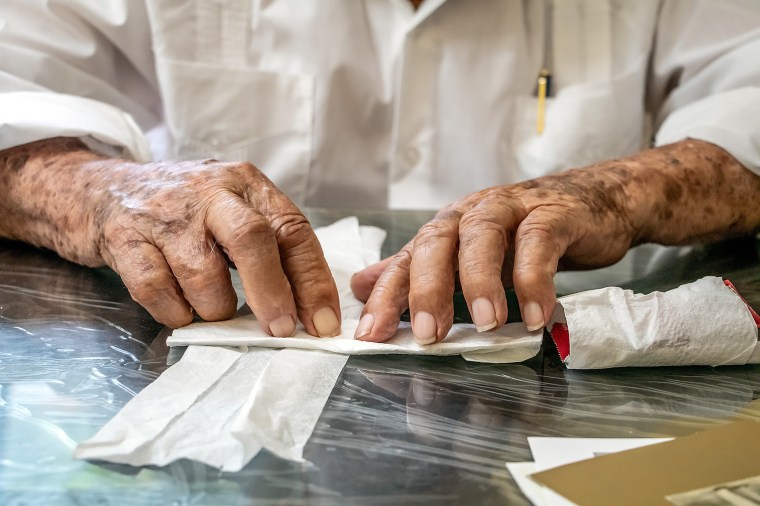
“Sometimes the sirens sounded, and they had to turn off all the lights, and everyone had to go down to their cabins and be quiet. Then, they told us there was a German submarine surrounding the ship. We had about three scares in Cuba, not knowing where we were going,” González Vega said. “I don’t know how many days, because the ship was coasting, until we reached Panama.”
Upon his arrival in the city of Balboa, in Panama, a group of U.S. soldiers surprised him with coffee and fresh milk after an arduous journey with scarce food.
Knowing only a few words of English — which he learned from a popular Puerto Rican children’s song from the 1930s created by a bilingual teacher — González Vega crossed the Panamanian jungle to reach his assigned station.
Shortly after he arrived, González Vega was promoted to private first class and later to sergeant, overseeing a group of Puerto Rican soldiers.
González Vega said that one of his most difficult moments was when his mother, María Vega, was hospitalized with asthma in Puerto Rico. One afternoon at the Panama Canal, he was working on an intense target practice session, so desperate to be with his mother that his head hurt, he said. Minutes later, he was told he had to report to the military airport and was taken to Puerto Rico on the mail plane.
Don Andrés cared for his mother until she recovered. Fifteen days later, he returned to the Panama Canal until the end of the war.
For his service, Don Andrés received the American Theater Service Medal, the Good Conduct Medal and the World War II Victory Medal.
Facing racism and challenges
In 1947, González Vega was part of a wave of Puerto Ricans who migrated to New York for economic reasons.
In the city, he unexpectedly ran into one of his friends from Panama. Together, they remembered former World War II colleagues, many of whom later died serving in the Korean War.
“Maybe that [death] would have happened to me, too,” González Vega said.
González Vega raised his daughter, Julia, with his wife in the Big Apple.
One of his daughter’s childhood memories is when she returned from school one day and saw her father painting part of the house after someone had tagged it with an insult: “Spics Go Home,” they both recounted.
At that time, minority groups in the United States faced the racial tensions of the segregation era and the struggle for civil rights. That deeply affected Don Andrés, who saw how a Black person could be sitting in one place and, if a white person arrived, would have to give up the seat immediately, the veteran said.
To channel his indignation, González Vega was part of the founding group creating the National Puerto Rican Parade in New York. He remembers how the group pressured the mayor, Robert Wagner, to grant them access to the famous Fifth Avenue for the parade.
“They went to Wagner, ‘If you want our vote, we want to march on Fifth Avenue,’” González Vega recalled, who also remembered the many Puerto Ricans who fought to also have voter registration forms in Spanish. “From there, Puerto Rican politics began, with many emerging leaders running for office, and today, you see that,” he said.
Making crafts, recording memories
Don Andrés later returned to Puerto Rico, where he completed his bachelor’s degree in business administration and worked as a festival coordinator at the Institute of Puerto Rican Culture and founded the Coconut Festival in Luquillo.
The father and daughter live 50 feet from each other, in concrete houses surrounded by plants that grow avocados, pigeon peas and plantains. González calls her father every morning to go over the day’s errands. After their chat, Don Andrés goes down 12 steps from the second floor of his house to sit in the dining room for breakfast: a glass of hot milk with bananas and oranges.
He makes handmade crafts, including traditional Puerto Rican musical instruments like his signature güiros and maracas.
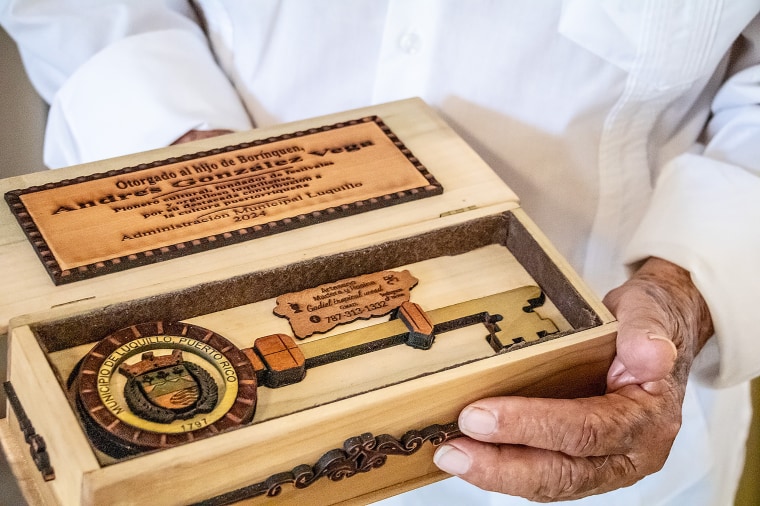
When González Vega visits El Yunque to sell his work, he sometimes wonders whether he should stop, as his daughter is the one who helps him carry the heavy table and set up his shop with his handmade instruments.
“I don’t want you to stop. I want you to continue,” González said with great emotion.
González, who dreams of creating a place that offers Puerto Rican crafts, coffee and wine, said that while she has to make a list to try to remember the things she has to accomplish, “my dad has everything in his mind. I want to continue to do everything in the way he has always done them.”
Don Andrés said, “I thank God for giving me a daughter like Julia, who means everything to me.”
Asked whether he has told his whole story, he replied with a smile: “I haven’t told you anything yet.”
González Vega continues his days reminiscing about his memories and enjoying the time he has with his daughter while singing his own version of Bad Bunny’s hit “Café Con Ron,” which rhymes in Spanish and loosely translates to “Coffee in the morning, and in the afternoon ham (jamón), we enjoy everything sitting in the balcony” (balcón).
An earlier version of this story was first published in The Latino Reporter, a news website sponsored by the National Association of Hispanic Journalists and produced by student members, who cover the organization and its annual conference.

